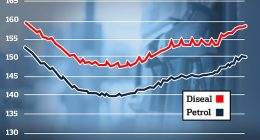PARENTS who receive payments on the new Job Support Scheme and the Self Employed Support Scheme (SEISS) will still be able to get free childcare, the government has said.
On October 31, the current furlough scheme – where the government pays up to 80% of people’s wages – is due to end, meaning November 1 is the start of the new Job Support Scheme.
How the new scheme works is it allows employees to work one day a week and earn up to 73% of their wages.
Meanwhile a new version of the SEISS, which covers 20% of business’ average monthly profits up to a total of £1,875, will also kick off on November 1 too.
And now the Department for Education (DfE) has announced that as parents return to work, they will still be able to receive 30 hours free or tax free childcare, even if their income levels fall below the threshold temporarily while they’re on the schemes.
Under government legislation, the DfE gives 30 hours free childcare to eligible parents of three and four-year-olds in England.
The minimum income threshold for 30 hours of free childcare and tax-free childcare is usually equal to 16 hours per week at the national minimum wage, which is £8.72 for people aged 25 and over.
This means you need to earn just under £140 a week.
What help is available for parents?
CHILDCARE can be a costly business. Here is how you can get help.
- 30 hours free childcare – Parents of three and four-year-olds can apply for 30 hours free childcare a week.
To qualify you must usually work at least 16 hours a week at the national living or minimum wage and earn less than £100,000 a year. - Tax credits – For children under 20, some families can get help with childcare costs.
- Childcare vouchers – If your employer offers childcare vouchers you can get up to £55 a week in tax and national insurance savings.
You pay for your childcare before your tax contributions are taken out.
This scheme is open to new joiners until October 4, 2018, when it is planned that tax-free childcare will replace the vouchers. - Tax-free childcare – Available to working families and the self-employed, for every £8 you put in the government will add an extra £2.
But as parents saw their income drop temporarily during the pandemic, which meant they no longer qualified for free childcare, the government said those who were previously eligible would still get the childcare allowance.
The Department for Education has received 180,000 applications for the allowance and around 430,000 reconfirmations for 30 hours places since March.
Children and families minister Vicky Ford said: “This government is increasing the safety net available to families, protecting working parents and our dedicated early years sector.
“We know challenges remain for many families, which is why we continue to protect parents’ eligibility for our free childcare offers so they retain this vital support.”
To apply for free childcare, you can apply on the government’s website.
Here are the worst areas that are expected to be affected by the furlough scheme ending.
It come as the coronavirus pandemic has sparked the biggest surge in unemployment in a decade.
And meanwhile, there’s just one week left to apply for a three month mortgage, credit card or loan payment holiday.















